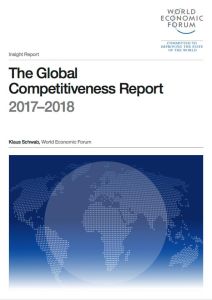Join getAbstract to access the summary!

Join getAbstract to access the summary!
Klaus Schwab
The Global Competitiveness Report 2017–2018
World Economic Forum, 2017
What's inside?
International competitiveness is showing new life, but countries need to do more.
Recommendation
Despite global GDP at well below long-run historical averages, the world’s economies are showing signs of revival, growing faster than in the years since the global financial crisis. Yet populations across countries are questioning free markets as a source of economic progress, amid a confluence of globalization issues, economic distortions from technology, and rising wealth and income inequality. The World Economic Forum’s annual report assesses the shifting competitive stature of 137 economies relative to their peers. getAbstract recommends this robust offering to policy experts and executives for its detailed look at the global economy’s growth prospects.
Summary
About the Author
Klaus Schwab is the founder and executive chairman of the World Economic Forum.





















Comment on this summary